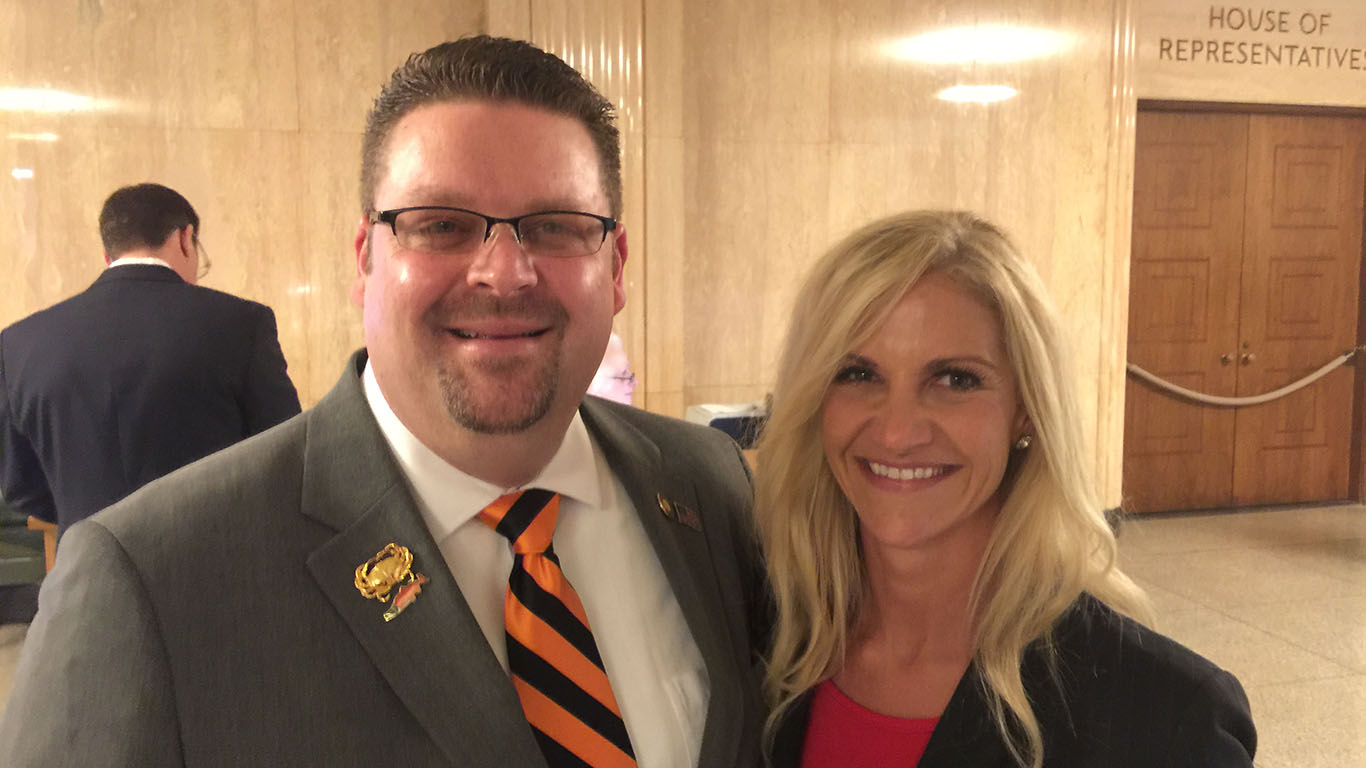In the second half of the legislative session, advocates put the pressure on to ensure their projects and programs receive funding and policies get passed. Association of Oregon Counties (AOC) Health and Human Services Steering Committee Chair Commissioner Kelley Minty Morris took to the Capitol last week to advocate for priority issues.
On the health and human services front, AOC has been focused on how to help fill the Medicaid funding gap. HB 2270, the tobacco tax is getting lots of discussion in the building. In the original proposal in Governor Brown’s Recommended Budget tobacco tax was to be raised by $2 per pack and extended to include e-cigarettes. Conversations heated up on the tobacco tax in mid-April but questions still loom regarding a legislative referral to voters and the original intent to incorporate some of the funding in public health modernization efforts.
One additional area AOC has been pushing forward is the opportunity to engage on Coordinated Care Organizations (CCO). Major efforts are underway to revamp CCOs as new contracts are being considered. AOC has been engaged in discussions on the CCO reform bill HB 2267, and many counties have voiced a desire to ensure that only one CCO is created per region to create a more streamlined process for health care and coordination. AOC has adopted a position that “Oregon Health Authority (OHA) shall consult with County Commissioners in their roles as Local Mental Health Authorities (LMHAs) and Local Public Health Authorities (LPHAs) on this issue of whether a single or multiple CCOs should be awarded in each region as part of the CCO 2.0 process.”
In her ongoing advocacy efforts this session, Commissioner Minty Morris has met with the OHA Government Relations Director, Representative Schouten, Representative Nosse, Representative Brock Smith, Representative Gomberg, Representative Stark, Senator Steiner Hayward, Senator Beyer’s office and Representative Salinas’ office. With each meeting, Minty Morris stressed the importance of AOC priorities related to housing, funding for public health modernization and for the overall need for adequate funding for our local mental health system, addiction services, and our intellectual/developmental disabilities system.
Contributed by: Megan Chuinard | Public Affairs Associate
